The Mother of the Brontës: When Maria Met Patrick
Their family life was to be cut short when she fell ill with uterine cancer. In her final moments, Maria Brontë’s final words were, “Oh God, my poor children!”
Maria Branwell’s legacy has come to be her daughters. The wise and fierce words of Charlotte, Emily and Anne Brontë burn in the world as brightly today as when they were written.
—Sharon Wright, The Mother of the Brontës: When Maria Met Patrick
I once read a reflection saying that, sometimes, a person’s greatest contribution to the world isn’t something that they do but someone they raise. These words praise women who sacrifice much in order to bring up strong, happy children.
As someone with a wonderful mother, I agree with the notion. I don’t consider myself great; I consider my mother great. She has done much to ensure I felt safe and loved, encouraging me to follow my dreams in the most trying times.
However, this saying might have held a different relevance in the past, when women did not have the choice to continue pursuing hobbies after motherhood. While the world does not work that way anymore—a woman may decide if she is called to have children, and after that, day-cares and other resources exist—a mother who sacrifices for her children should be lauded.
Many—not all—of the great people in history had a mother behind them (assuming that their mother survived childbirth and the countless other diseases that could destroy a family). Those whose mothers were supportive had a great ally.
Unfortunately, many mothers in the past did not survive to see their children grow into adulthood. Of those who did, many vanish into oblivion.
I have tried, with these musings, to provide context; with this article, I wish to honor a woman born into a world where ladies had few choices in life. In spite of this, she was grateful for the options she had, entrusting her destiny to God. I wish also to shed light on the tragic story of her family as a whole.
This post is about Maria Branwell Brontë, the mother of three famous authors you must have heard of. They are Charlotte, Anne, and Emily Brontë. Any lover of literature has their books displayed on a shelf.
While the lives of the Brontës were short, they left a mark on history that few others can claim.
My musings about motherhood were inspired by a book called The Mother of the Brontës: When Maria Met Patrick by Sharon Wright. I discovered it while scrolling the rabbit hole of Amazon and could not ignore it. If one of my delights is shedding light on little-known historical figures, how can I not learn about this woman?
The book focuses on Maria’s early life and her years married to Patrick. It’s not long, because her life wasn’t long. In this case, it would appear that Maria’s greatest achievement was the loving and nurturing of her children.
Some might be tempted to say what a pity, her whole life was centered on being a mother. I beg to differ: while I am not a mother, I’m of the opinion that raising a family is one of, if not the most important job for someone called to parent.
Maria Branwell was born on April 15, 1783 to Thomas and Anne Branwell. Thomas was a wealthy businessman; they lived in a seaside town called Penzance, in Cornwall.
Penzance was a busy marketing and fishing hub; Maria would have seen all forms of ships passing through. With close proximity to the sea came the danger of pirate raids; it was not uncommon to see navy soldiers training in the area. As a lover of ocean lore, I can only imagine the frigates she’d have witnessed during afternoon walks.
The Branwells were a large family of twelve, but—as was the unfortunate norm of the time—not all of the children made it past infancy. It is a miracle that Anne survived childbirth so many times. She must have suffered greatly in her motherly heart. Infant mortality was not uncommon, but pregnancy and childbirth take much from a woman, physically and spiritually.
Christian faith would have helped the Branwells through those sad seasons. They were a religious family, holding to the Wesleyan tradition. At the end of the day, though, heartbreak is heartbreak. In my experience, religion can only do so much to save us during the stages of grief.
Like her parents, Maria Branwell was a devoted Christian. Her letters contain the words of a woman who put much weight into her relationship with God.
She remained with her family in Cornwall until she was contacted by a cousin, Jane Fennell. Jane wrote that her parents had established a Methodist school for boys. There had been an unexpected surge of pupils, and the school didn’t have enough hands to keep things in order. Would Maria help manage day-to-day matters, such as cooking and laundry?
By that time, Maria’s parents had both died. Convinced that the invitation was a calling from God, she wrote back agreeing to work at the school. Soon, she was riding on a coach through the bright, verdant countryside.
To read more about Maria Branwell and her life as a mother, check out this excellent article.
Maria Branwell did not know, when leaving Penzance, that she would never return.
Her future husband, Patrick Brunty, was a self-made man. He was born in Imdel, Ireland, on 17 March, 1777. Patrick was the eldest of ten children born to Hugh and Elinor Alice Brunty. The family was very poor; according to Wikipedia, they owned “four books, including a Bible” and subsisted on “porridge, potatoes, buttermilk and bread.”
Though Hugh was a farmhand, Patrick was not called to such a life. In 1802, Patrick moved to England, hoping to start his own life as a clergyman. After this move, he did not seem to have kept in touch with his family, as if he wished for them to remain in his past.
Freshly arrived in England, he commenced to rebuild himself. This began with a change of surname. It was an accident at first, the byproduct of English authorities mispronouncing ‘Brunty’ in all forms of ways (including Brundy and Brunthy and Bronty).
Eventually, he settled on Brontë. This was the name he would wear for the duration of his life, the name he would give to his wife and children. He created his own dynasty but, tragically, was alive to see his offspring expire; the Brontë dynasty would not last.
It was at the Fennells’ school that Maria and Patrick met. Though they bonded because of shared religious belief, that can’t have been all of it. While Patrick’s responses have been lost, Maria’s written words to him hinted at a mutual attachment. Her joy when they decided to marry was that of a woman in love; it was not merely duty.
Maria and Patrick were married on 29 December, 1812. It was a triple wedding, for on the same day her cousin Jane married Reverend William Morgan and, back in Penzance, Maria’s little sister Charlotte also took her vows. They took care in arranging for their ceremonies to commence at the same time. It makes for a most romantic story that I can imagine Maria telling her children later.
After marrying, Maria and Patrick moved to a parsonage in Liversedge. This is where their first two children, Maria and Elizabeth, were born. Charlotte, Patrick, Emily and Anne were born in Thornton.
After Maria’s time at the school was through, she took on with courage the roles of wife and mother. She followed when Patrick’s work required that they move to Haworth and Thornton. She raised her children to be faithful and intelligent.
Though Patrick and Maria both encouraged their children to enjoy the written word, Maria wrote only one known piece of literature. A religious tract, it was not widely distributed; many considered it to be too strict. In spite of the fact that she did not write a book, can’t we argue that there is an echo of her in every story written by her children?
Surely, after her death, her ideas guided them like compasses. Her love would have encouraged them to finish their novels, like her hand once helped them to hold a pen over a page. I like to think that, after death, Maria’s loving voice whispered into Charlotte’s ear as she wrote her famous works.
It is often forgotten that, though three of her children are famous, Maria had six. These include Maria, born in 1814, and Elizabeth, born in 1815. Charlotte followed in 1816, then Branwell in 1817; he was the only Brontë son. Their family continued to grow with Emily in 1818 and Anne in 1820.
Their family life was to be cut short when Maria fell ill with uterine cancer. On May 8, 1828, in her final moments, it is reported that Maria Brontë’s final words were, “Oh God, my poor children!”
She must have sensed that her last breath was upon her; she had requested that her family be brought into her room, wishing that their faces should be the last visions she’d see in life.
This was the end of Maria’s pilgrimage on earth; for Patrick, his trials had only begun. Maria’s loss would not be the last tragedy to upend his life. Perhaps the dying Maria sensed that her husband would outlive their children. Perhaps that added to her agony.
Maria was to be the only Mrs. Brontë, for Patrick never remarried.
Charlotte, Emily, Anne, and even Branwell (who published 17 poems during his short life) made deep marks in the history of literature. Though Patrick’s work consisted of religious texts, he, too, was an author.
There isn’t much recorded about the life of Maria Brontë, no heroic moment like Mary Shelley’s victorious Frankenstein or Beatrix Potter’s entrance into Kew Gardens.
I want to end this post on a note of truth: a short life, lived in love, is just as fruitful as the life of an octogenarian.
Maria’s contributions to the world were gentle—serving in a boys’ school, birthing and loving six children. We in this century underestimate the effects that small acts of kindness have on the universe. We underestimate the sacred responsibility of motherhood.
Patrick watched his wife wither and die. As the years passed, his children followed; the man was forced to bury them all. He joined them at last on 7 June, 1861 in Haworth. I imagine that he was eager to see his loved ones again, longing to embrace his wife and children in the afterlife.
The next time I read Jane Eyre or Wuthering Heights, I will think of Patrick and Maria Brontë. I will search their daughters’ words for echoes of their spirits. I will also give thanks that I live in a time where life was not so fragile, a petal caught in the wind, so easy to slip between one’s fingers.
Now, for the book review. I highly recommend The Mother of the Brontës: When Maria Met Patrick by Sharon Wright. It is a quick read and sheds important light on the lives of what might be the most important family in English literature.
There is a book about Patrick that I hope to get my hands on soon, that I might have a more complete view of their story and how they met. I also think that a reread of their daughters’ works is due soon; perhaps it is the voice of Maria, speaking praises in my heart of her children and the stories that they wrote.
Patrick and Maria’s love story is surprisingly romantic. For some reason I tend to think of the Brontë family in terms of gray: theirs aren’t exactly fairy tale stories, and we have just read about the tragedy that was their life. It was refreshing to read about their meeting at the school, their courtship, and their eagerness to share a life together. For that reason alone, I believe that it is necessary for a book lover to give this story a try.
Not everyone is fortunate enough to have good and loving parents; I freely acknowledge that. However, one does not necessarily need a parent to be their encourager. Look for the friends who are unafraid to be honest and supportive. Look for the people who will hold you when you are broken and laugh with you when you’re joyful.
I’ll be reading Wuthering Heights soon; it’s been on my mind to do so for a while. I will surely write more about the Brontës when I start it. Until then, I’ll be grateful that Patrick and Maria shared a genuine love.
Already, I think often about Patrick in his lonely final years; I hope that the unfortunate Brontë family are together again now, wherever they are.
Conclusion: How Mary Shelley Lost Percy to the Sea
Valued patrons of the Literary Ladies’ Tearoom, we have reached the end of October—and with it, we must offer the seat of authorly honor to a different guest, Louisa May Alcott, for November.





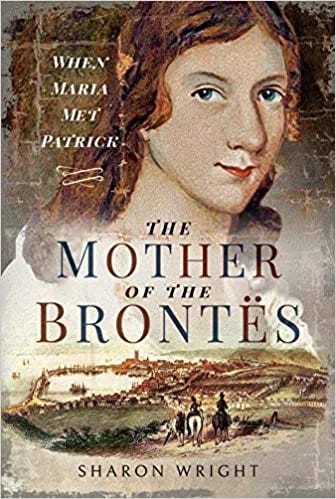

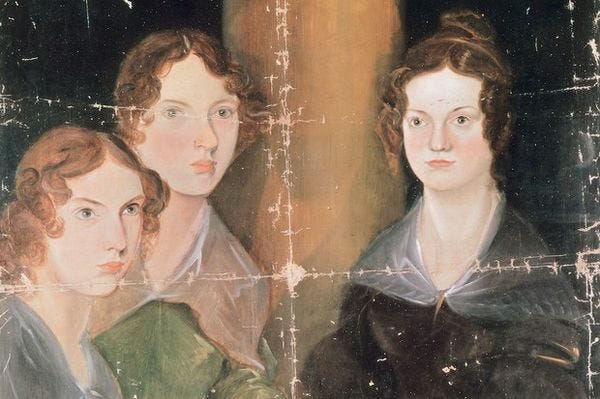
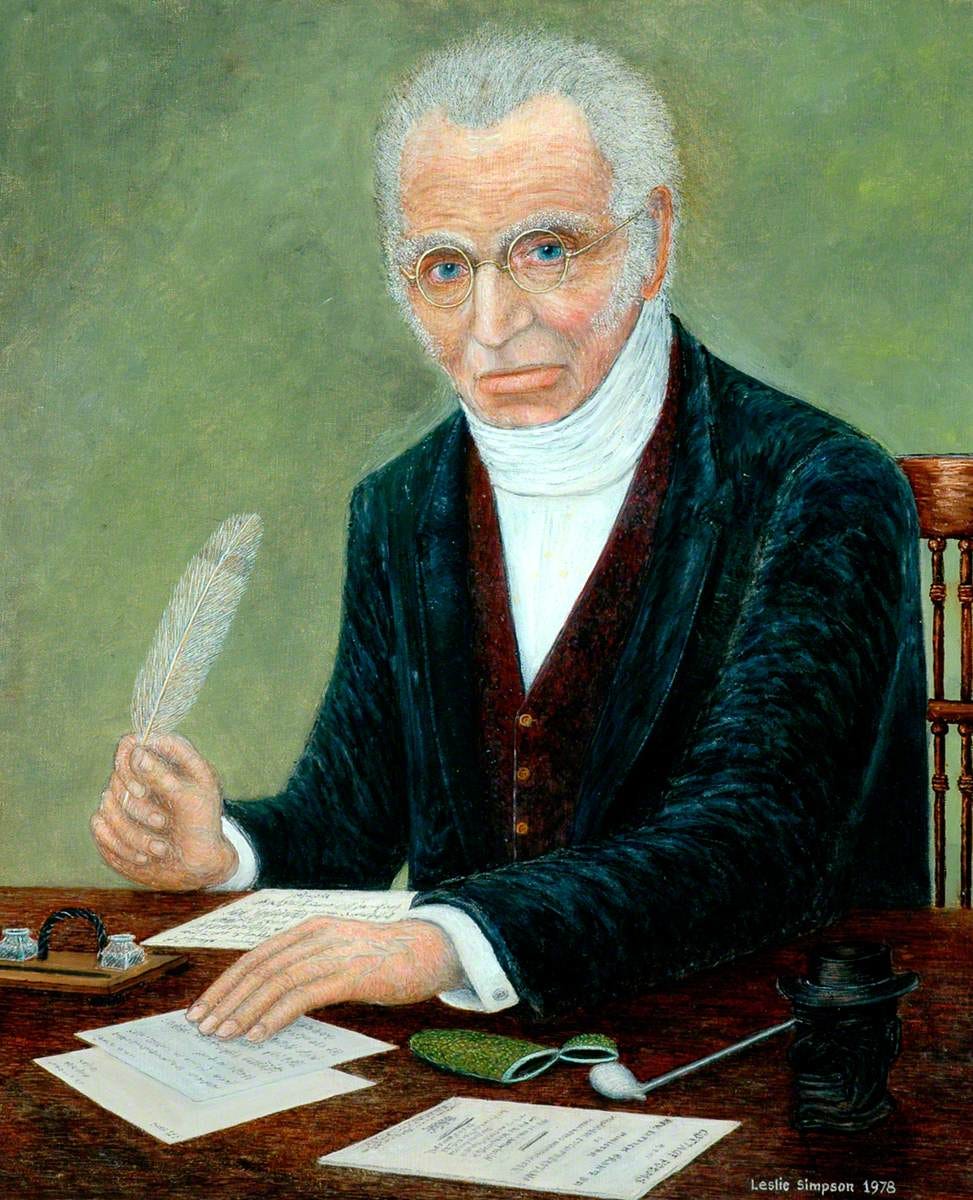
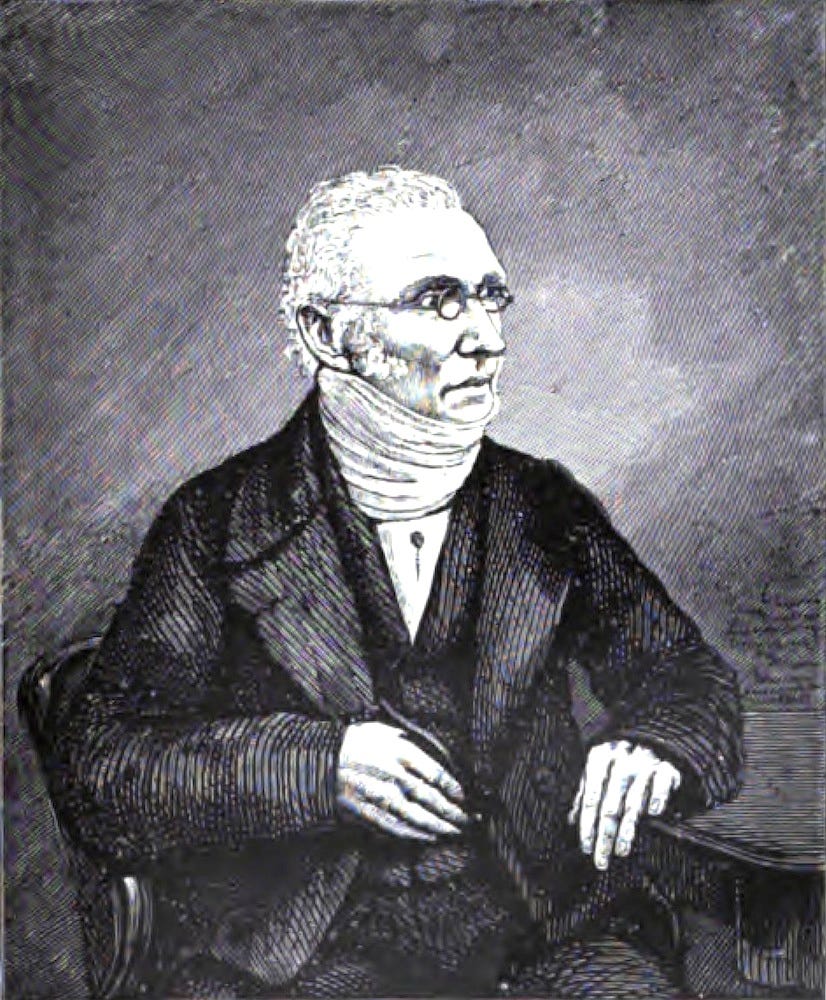
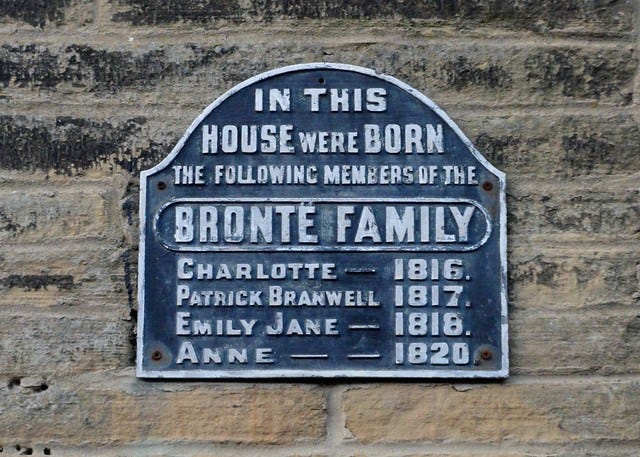
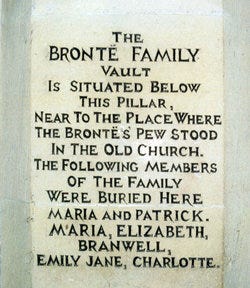
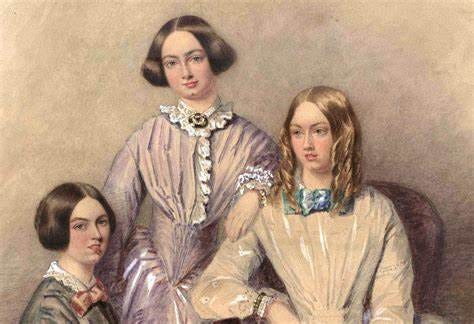

I so enjoyed reading this and learning more about the life of the Brontës, thank you for sharing! I was so surprised to read that Patrick actually changed his surname!? 😯
I am adding this book to my TBR as it sounds very good and I am interested in learning more about the Mother of the Brontë sisters, it is so sad that she died so young though... their lives were kind of tragic. 😥
I haven't read Wuthering Heights yet, but I have a copy of it on my bookshelf. I just need to get round to reading it! 📚
Maria must have been a uniquely caring parent to have four children take to writing. I do think however that there is respect today given to parents (not just women) deciding tomaket rearing children the priority in their lives. Young adults may not think that way as they are focused on themselves, their relationships, their careers. As they become parents (or their friends do), many reevaluate the important role of parenting in our society. And in senior years often realize it isn’t their work that outlives them (unless contributing revolutionary advances to a discipline) but their children, and their grandchildren, and great grandchildren. At some time in the future their impact will likely fade as a specific family tale but will still continue to be felt in how family members live in society. Maria’s parenting influence sadly ended with her children. As you say, we can hear her voice in the stories of her daughters where central characters lack parents of any kind.